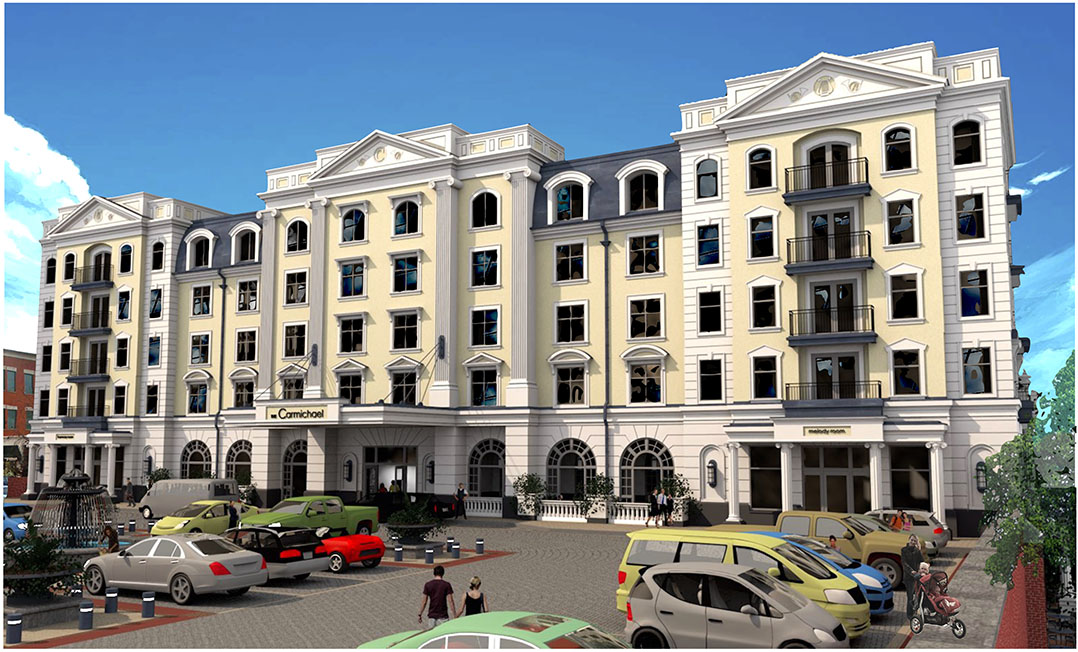As the skeleton of Carmel’s luxury hotel begins to take shape across from the Palladium, the city has not closed on its portion of financing for the project, instead using Carmel Redevelopment Commission funds to cover the $1 million it has spent on the project so far.
The city expects to close on financing to fund its portion of the project in early April, although it has had a financing agreement in place since last fall, Clerk-Treasurer Christine Pauley said. City officials declined to disclose terms of the financing because it hasn’t closed yet, but Mayor Jim Brainard said the delay was intentional and will benefit taxpayers.
“We saved some money by not closing and using our cash, and then we’ll reimburse the CRC when we do close it,” he said. “Every day we avoid paying interest you save a little bit of money.”
City spokesman Dan McFeely said the CRC has saved “thousands of dollars” by waiting to close on the financing, but he did not specify an amount. He also said waiting to finalize the financing has always been part of the plan to pay for the hotel and that no other projects have been affected or delayed by the hotel timeline.
The $40 million Hotel Carmichael is a public private partnership between the city and developer Pedcor. The Carmel City Council approved $96 million in bonds to fund the hotel and other projects in September 2017, with $18 million designated for the hotel. Pedcor contributed the land for the hotel and is responsible for the remaining construction costs.
Pauley, whose duties include processing city expenditures, said she has several concerns about the city delaying financing of the hotel. She said CRC Executive Director Henry Mestetsky and Brainard have “taken advantage” of the CRC and city council approval of the hotel financing, which did not include a final date for bond closure.
“Instead, they placed taxpayer money at risk by signing hotel contracts, initiating work and paying contractors for their hotel work (close to $1 million) by using CRC budgeted money with the anticipation that the CRC will be able to issue a claim for reimbursement to itself from the hotel financing,” she said. “If the CRC has the extra funds available to pay contractors for hotel work prior to loan financing, maybe the amount to be financed should be reduced accordingly?”
Craig Johnson, an associate professor in the Indiana University School of Public and Environmental Affairs, said waiting to close financing to save on interest payments is not a “standard practice” and could be “a cause of concern.”
“The argument they’re making that these are free dollars versus dollars they’d be paying interest on is not a factual argument,” he said. “The dollars could be sitting in a bank earning interest.”
He also said that taxpayers may be able to argue that their taxes are too high if a city has these kinds of funds available to use to hold off interest payments.
Brainard said that commercial loans are complex and “never easy to close” but that he expects this one to be finalized soon.
“It’s time to get it closed and reimburse the cash,” he said. “As the summer comes up, there will be other needs for the cash as well, but over the winter months they were able to avoid paying interest on it.”
The five-story hotel is expected to open May 1, 2020.



